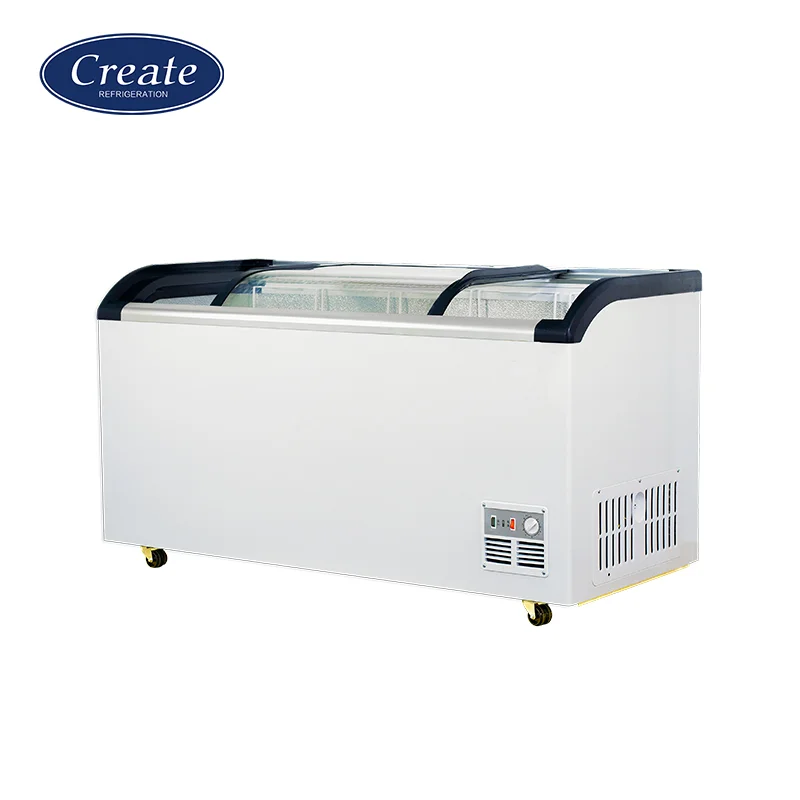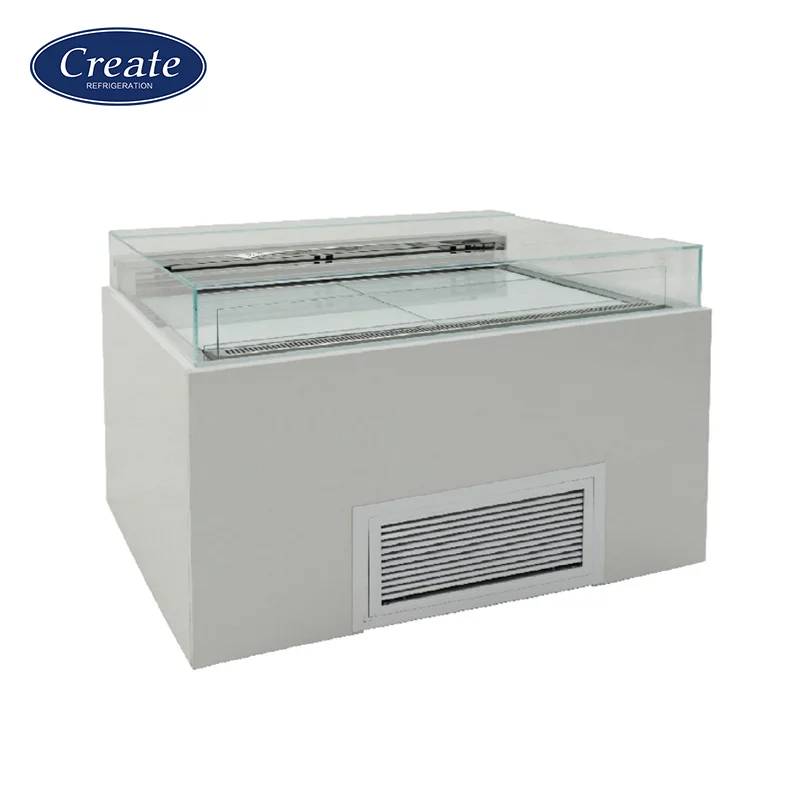Selecting the ideal refrigerator for your family is a concern with functionality, longevity, and efficiency, and not size. The commercial refrigerator has huge space and good chilling but consumes more electricity, demands frequent maintenance, and demands being misplaced. What you need to learn here is to determine if the appliance will work in your family kitchen.
What Makes a Commercial Refrigerator Different from a Residential One?
Before you install a commercial appliance in your household, keep in mind the general differences between commercial and residential refrigerators. They both chill food. But they’re designed for different uses.
Size and Capacity Differences
Commercial refrigerators can store hundreds of products, while a mini-fridge in the home might store about fifty. Perfect for bulk buying and storing large amounts of food, they offer huge capacity advantages.
Durability and Build Quality
Commercial refrigerators are built to run continuously in restaurant kitchen spaces. They are constructed of hard materials like stainless steel. They have a longer lifespan than home fridges. That makes them a durable, dependable choice. In addition, the steel enclosure provides your kitchen space with a sleek, professional appearance.
Cooling Technology Variations
Commercial ones feature powerful compressors. These maintain temps consistent regardless of repeated door swings—good for busy places. They are equipped with sensors and notifications for food safety. Residential fridges, however, have weaker compressors. They experience temp fluctuations when used intensively.
Why Would a Do Big Family Need a Commercial Refrigerator?
In light of these features, how could this appliance be appropriate for a big household? Some of the needs that come with a hectic home could tilt in its favor against its shortcomings.
Bulk Storage for Large Households
The huge storage capacity is a major attraction. If you have the habit of buying groceries in bulk to save money or cut down on trips to the store, commercial refrigerator does not mind those heavy loads. It’s especially handy for families stocking piles of fresh fruits and vegetables, meats, and perishables.
Regular Meal Prep Needs
Commercial refrigerator installation makes ingredient and ready meals organization possible. Its hardy racks avert bottle and container uneven cooling. Ideal for cookery fanatics who like experimenting with meals or hosting grand parties, it creates room to avert overcrowding.
Long-term Food Preservation Advantage
Commercial refrigerators possess heavy-duty build and robust cooling for excellent food storage. They ensure consistent temps, which are paramount in preventing spoilage and extending freshness. Heavy-duty components and parts resist day-to-day operation, so the appliance can outlast a home version when in full-time use.
Is There Room in the Home Kitchen for a Commercial Refrigerator?
The concept of having a big, rugged refrigerator may appeal to you. But remember to look into the actual application fit of the appliance in your kitchen area.
Space Requirements and Layout Tips
Take accurate measures of your cooking area to find out if it fits. See if there’s depth, width, height, and door swing space. Factor in your space’s flow as well.
Factors for Installation
When you install commercial refrigerator, you might need a professional for wiring and leveling to achieve optimal performance and tight seals. Moreover, transporting and installing a big unit is a heavyweight task.
Aesthetic Impression on Kitchen Style
Commercial refrigerators have a steel look. Nevertheless, the industrial appearance with its bold lines might not be pleasing to all. It could conflict with certain cooking space moods.
How Does a Commercial Refrigerator Affect Home Energy Bills
Power usage is a matter of concern in choosing any appliance, and it is not any different for these refrigerators.
Power Consumption Observations
Extensive size and heavy cooling demand of commercial fridges necessitate it. They are built lean to run for commercial purposes. However, their size hikes electricity bills.
Features of Efficiency To Consider
For those with thicker insulation, high-speed compressors, automatic thaw, and LEDs to lower use. Some of them even utilize frequency technology in order to shave electric bills.
Cost-Saving Potential Over Time
Early energy payments could increase. But their durability and strength will earn money in the long run by preventing incessant substitutions. Equate start-up cost and future return on investment to the quick increase in bills.
Are Commercial Fridges Too Noisy for Domestic Life?
Noise is a factor, too—especially where tranquility typically is the rule of the house.
Noise Levels Compared to Domestic Models
Home refrigerators have strong fans and compressors that operate around the clock. That can make them louder than their home counterparts.
Quiet Operation Placement Solutions
Stick it out of the way from the center of living or dining space to muffle it. Level it straight, too. That removes shakes and hum.
New Models with Quieter Sound
Check out new models. Some brands tweak technology to silence the rumble. Check reviews and specs for silence cues.
Is a Commercial Refrigerator Safe for Food Storage at Home?
Safety’s monarch in storing food at home.
Accuracy of Temperature Control
Commercial refrigerators isolate precise, consistent temperatures—key to food safety. Their high-performance cooling keeps goods in secure ranges, stifling germ dangers. That ensures quality and protection.
Hygiene Standards for Family Use
Commercial refrigerators utilize smooth, cleanable surfaces like stainless steel for hygiene. They don’t, however, utilize bins for vegetables or meat. Therefore, sort using plastic tubs to avoid germ exchanges.
Compliance with Safety Rules
Built for tough pro rules, commercial refrigerators have high safety ratings. Those rules aim at businesses. However, they provide some reassurance.
What Are the Maintenance Needs of a Commercial Refrigerator at Home?
Keeping any fridge in top condition is crucial for longevity and zip—commercial or otherwise.
Cleaning and Defrosting Basics
They collect more dust with heavy use and high-powered fans. Many have auto-thaw to make cleaning and servicing easier.
Factor of Component Life
They will last 10-15 years. Brand, maintenance, and use decide shapes that range. Correct installation, air circulation, and light loads prolong life. Regular inspection and prompt repairs contribute to it, too.
Professional Servicing Options
These systems are finicky. Big fixes usually require pro hands. They are different from household units, requiring special know-how and components.
Why Choose Shandong Create Refrigeration Co., Ltd.?
Shandong Create Refrigeration Co., Ltd. is a leading all-in-one distributor for China’s supermarket and project cooling. They combine design, production, R&D, and sales. They have equipment that varies from commercial and steel models with cold storage, complete with modifications like guards and wheels. Plug-in varieties have a one-year warranty, with key components covered for three. Ideal for surveying commercial cooling systems.
Whether commercial refrigerators are suitable for a big family cooking area is up to your needs and lifestyle. If you need huge storage, toughness, and steady chill—and are willing to pay more in energy and maintenance—it might be worth considering.
FAQs
Q: Are commercial refrigerators more temperature consistent than home fridges?
A: They carry heavy-duty compressors and refrigeration for continuous temps, even with door swings. A must for pro applications, it’s a plus for big families needing solid food storage.
Q: Is a commercial refrigerator’s increased energy consumption a significant consideration in residential applications?
A: They use more juice than home units due to power and size. That increases bills. Some are skinny machines, but they still consume more than home units.
Q: Will a commercial refrigerator support frequent opening of the door?
A: Yes, commercial refrigerators are built with strong cooling systems to keep temperatures constant even with continuous use.






















